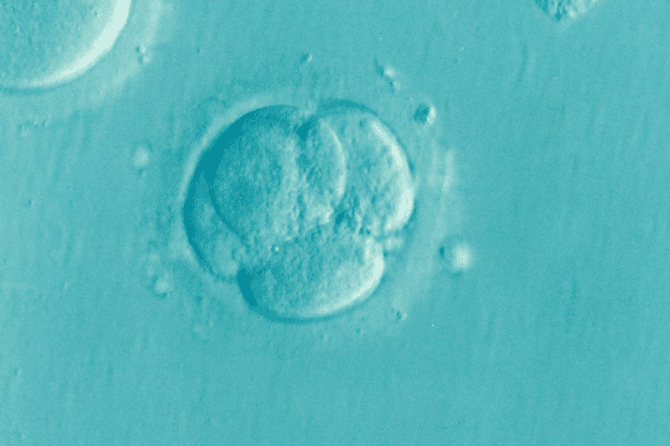The impact of lifestyle choices on male fertility is a topic of great importance and concern. It is well-known that certain lifestyle choices can have a significant effect on reproductive health in men. This article aims to explore these choices and shed light on the potential consequences they may have on male fertility.
When it comes to male fertility, there are several factors that can play a role. Lifestyle choices such as smoking, diet, obesity, alcohol consumption, stress, occupational hazards, and a sedentary lifestyle can all have an impact on reproductive health. Understanding the effects of these choices is crucial for men who are planning to start a family or are experiencing difficulties in conceiving.
Let’s delve into each of these lifestyle choices and their potential consequences for male fertility. By examining the relationship between smoking and male fertility, we can understand the negative effects of smoking on sperm quality and quantity. Smoking has been linked to decreased sperm count, motility, and morphology, making it more difficult for couples to conceive.
Next, we explore the impact of diet on male fertility. A balanced diet plays a crucial role in overall health, including reproductive health. Certain nutrients, such as antioxidants, zinc, and omega-3 fatty acids, have been found to have positive effects on sperm health. On the other hand, a diet high in processed foods, saturated fats, and sugars may have a detrimental effect on male fertility.
Obesity is another lifestyle choice that can have a significant impact on male fertility. Excess weight can lead to hormonal imbalances, such as increased estrogen levels and decreased testosterone levels. These hormonal changes can affect sperm production and quality, making it harder for couples to conceive.
Alcohol consumption is yet another factor that can affect male fertility. Excessive alcohol intake has been linked to decreased sperm production, motility, and overall reproductive health. It is important for men to be mindful of their alcohol consumption, especially when trying to conceive.
Stress is a common factor in today’s fast-paced world, and it can also have an impact on male fertility. Chronic stress can lead to hormonal changes that can affect sperm production and quality. Finding healthy ways to manage stress, such as exercise or relaxation techniques, can be beneficial for reproductive health.
Occupational hazards, such as exposure to chemicals or radiation, can pose risks to male fertility. Certain occupations, such as those involving prolonged exposure to pesticides or heavy metals, may increase the risk of fertility issues. It is important for men in such occupations to take necessary precautions to protect their reproductive health.
A sedentary lifestyle, characterized by a lack of physical activity, can also have a negative impact on male fertility. Regular exercise has been found to improve sperm quality and hormonal balance. Engaging in moderate physical activity can be beneficial for both overall health and reproductive health.
In conclusion, the impact of lifestyle choices on male fertility should not be underestimated. By making informed decisions and adopting healthy lifestyle habits, men can optimize their reproductive health and increase their chances of conceiving. It is important to remember that each individual is unique, and the effects of lifestyle choices may vary. Consulting with a healthcare professional can provide personalized guidance and support for men seeking to improve their fertility.
Smoking and Male Fertility
Smoking and Male Fertility
Smoking has long been recognized as a harmful habit, but its impact on male fertility is often overlooked. Research has shown that smoking can have detrimental effects on sperm quality and quantity, significantly increasing the risk of infertility.
One of the main ways smoking affects male fertility is through the damage it causes to sperm DNA. The toxic chemicals found in cigarettes, such as nicotine and carbon monoxide, can lead to oxidative stress and DNA fragmentation in sperm cells. This can result in reduced sperm motility and viability, making it more difficult for them to reach and fertilize an egg.
Furthermore, smoking has been linked to hormonal imbalances in men, specifically affecting testosterone levels. Testosterone is crucial for sperm production and overall reproductive health. When testosterone levels are disrupted, it can lead to a decrease in sperm count and quality.
It’s important to note that the negative effects of smoking on male fertility are not limited to active smokers. Secondhand smoke has also been found to have similar detrimental effects on sperm health. Therefore, even if you are not a smoker yourself, being exposed to smoke in your environment can still pose a risk to your fertility.
If you are trying to conceive or are concerned about your reproductive health, quitting smoking is one of the most impactful lifestyle changes you can make. By quitting smoking, you can improve your sperm quality and increase your chances of successfully starting a family.
Diet and Male Fertility
Diet plays a crucial role in male fertility, as it can significantly impact sperm health and overall reproductive function. Maintaining a balanced diet is essential for optimizing fertility outcomes. A well-rounded diet should include a variety of fruits, vegetables, whole grains, lean proteins, and healthy fats.
Certain nutrients have been found to have potential benefits for sperm health. For example, antioxidants such as vitamin C, vitamin E, and selenium can help protect sperm from oxidative damage and improve their motility. These antioxidants can be found in foods like citrus fruits, nuts, seeds, and leafy greens.
In addition to antioxidants, omega-3 fatty acids are also important for male fertility. These healthy fats can be found in fish, flaxseeds, and walnuts. Omega-3 fatty acids have been linked to improved sperm quality and higher sperm count.
On the other hand, a poor diet high in processed foods, saturated fats, and sugar can have detrimental effects on male fertility. It can lead to inflammation in the body, which can negatively affect sperm production and function. Therefore, it is important to limit the consumption of unhealthy foods and focus on a nutrient-rich diet.
In summary, a balanced diet that includes a variety of fruits, vegetables, whole grains, lean proteins, and healthy fats is essential for promoting male fertility. Incorporating foods rich in antioxidants and omega-3 fatty acids can have potential benefits for sperm health. On the other hand, a poor diet high in processed foods can have negative effects on male reproductive function. Making dietary changes can be a simple yet effective way to improve male fertility and overall reproductive health.
Obesity and Male Fertility
Obesity has been found to have a significant impact on male fertility. Research suggests that excess weight can lead to hormonal imbalances, which can in turn affect reproductive health. One of the key hormones involved in male fertility is testosterone. Obesity has been linked to lower testosterone levels, which can have a negative impact on sperm production and quality.
In addition to hormonal imbalances, obesity can also directly affect sperm quality. Studies have shown that overweight and obese men tend to have lower sperm counts, reduced sperm motility (ability to swim), and abnormal sperm morphology (shape and structure). These factors can make it more difficult for couples to conceive naturally.
Furthermore, obesity has been associated with other health conditions that can further contribute to fertility issues. For example, obesity increases the risk of developing conditions such as diabetes and high blood pressure, which can also have a negative impact on male fertility.
To improve fertility outcomes, it is important for men who are overweight or obese to adopt a healthier lifestyle. This includes maintaining a balanced diet, engaging in regular physical activity, and managing stress levels. Losing weight can help restore hormonal balance and improve sperm quality, increasing the chances of successful conception.
In summary, obesity is closely linked to male fertility issues. It can lead to hormonal imbalances, decreased sperm quality, and increased risk of other health conditions that can further impact reproductive health. Adopting a healthier lifestyle and maintaining a healthy weight can help improve fertility outcomes for men.
Alcohol and Male Fertility
Alcohol consumption can have a detrimental effect on male fertility, impacting sperm production, motility, and overall reproductive health. When consumed in excess, alcohol can disrupt the delicate hormonal balance necessary for healthy sperm production. It can also lead to a decrease in sperm count, making it more difficult for couples to conceive.
Studies have shown that alcohol can impair sperm motility, which refers to the ability of sperm to swim and reach the egg for fertilization. Reduced motility can significantly decrease the chances of successful conception. Additionally, excessive alcohol consumption can lead to DNA damage in sperm, further compromising fertility.
It is important to note that even moderate alcohol consumption can have negative effects on male fertility. The exact threshold for harmful alcohol intake is still debated, but it is generally recommended that men trying to conceive limit their alcohol consumption or abstain altogether.
A balanced and healthy lifestyle is crucial for optimizing male fertility. This includes making mindful choices when it comes to alcohol consumption. If you are trying to conceive or are concerned about your reproductive health, it is advisable to consult with a healthcare professional who can provide personalized guidance and support.
Stress and Male Fertility
Stress can have a significant impact on male fertility, affecting both hormonal balance and sperm quality. When a person experiences chronic stress, their body releases stress hormones such as cortisol, which can disrupt the delicate hormonal balance necessary for healthy sperm production.
Additionally, chronic stress can lead to decreased sperm quality. High levels of stress can affect the DNA integrity of sperm, leading to abnormalities and reduced fertility. Stress can also impair sperm motility, making it more difficult for sperm to reach and fertilize an egg.
It is important to note that stress affects each individual differently, and some men may be more susceptible to its effects on fertility than others. However, managing stress levels and finding healthy coping mechanisms can be beneficial for overall reproductive health.
To reduce stress and improve fertility, it is recommended to incorporate stress-reducing activities into daily life. This can include regular exercise, practicing relaxation techniques such as meditation or deep breathing exercises, and engaging in hobbies or activities that bring joy and relaxation.
Additionally, seeking support from loved ones or professional counselors can provide valuable emotional support and help in managing stress. It is important to prioritize self-care and take steps to reduce stress levels for the sake of both mental and reproductive health.
Occupational Hazards and Male Fertility
Occupational hazards can have a significant impact on male fertility and pose potential risks to reproductive health. Exposure to chemicals or radiation in the workplace can lead to adverse effects on sperm quality, quantity, and overall reproductive function. It is essential to understand and address these occupational hazards to protect male fertility and promote reproductive well-being.
Chemical exposure in certain industries can have detrimental effects on male fertility. Many chemicals found in the workplace, such as pesticides, solvents, heavy metals, and industrial pollutants, have been linked to decreased sperm quality and quantity. These substances can disrupt hormonal balance, damage DNA in sperm cells, and impair sperm motility, making it more challenging for couples to conceive.
Radiation exposure is another significant occupational hazard that can impact male fertility. Workers in industries like nuclear power plants, radiology departments, and certain medical professions may be exposed to ionizing radiation, which can damage sperm DNA and impair reproductive function. Prolonged exposure to high levels of radiation can increase the risk of infertility and even contribute to genetic abnormalities in offspring.
To mitigate the risks associated with occupational hazards, employers should prioritize safety measures and provide appropriate protective equipment to workers. Regular monitoring of workplace environments and implementing proper safety protocols can help reduce exposure to harmful chemicals and radiation. Additionally, workers should be educated about the potential risks and encouraged to take necessary precautions to safeguard their reproductive health.
It is crucial for individuals working in occupations with potential hazards to be proactive in protecting their fertility. This may include seeking regular medical check-ups, practicing safe work practices, and following recommended guidelines for personal protective equipment. By prioritizing reproductive health and minimizing exposure to occupational hazards, individuals can increase their chances of maintaining optimal fertility and overall well-being.
Sedentary Lifestyle and Male Fertility
A sedentary lifestyle refers to a lack of physical activity or exercise, typically characterized by long periods of sitting or inactivity. While it may seem unrelated, research has shown that a sedentary lifestyle can have a significant impact on male fertility. In fact, studies have suggested that men who lead sedentary lives are more likely to experience fertility issues compared to those who are physically active.
One of the primary effects of a sedentary lifestyle on male fertility is the potential negative impact on sperm quality. Regular physical activity has been found to improve sperm count, motility, and morphology, while a lack of exercise can lead to decreased sperm quality. This can make it more difficult for couples to conceive and increase the risk of infertility.
In addition to affecting sperm quality, a sedentary lifestyle can also disrupt hormonal balance in men. Regular exercise has been shown to help regulate hormone levels, including testosterone, which plays a crucial role in male reproductive function. On the other hand, a sedentary lifestyle can lead to hormonal imbalances, potentially affecting sperm production and overall reproductive function.
Furthermore, a sedentary lifestyle can have broader implications for reproductive health beyond just sperm quality and hormonal balance. It can contribute to other health issues such as obesity, which is known to have a negative impact on fertility. Obesity can lead to hormonal imbalances, insulin resistance, and inflammation, all of which can affect reproductive function in men.
To mitigate the potential negative effects of a sedentary lifestyle on male fertility, it is important for men to incorporate regular physical activity into their daily routine. Engaging in moderate-intensity exercises such as brisk walking, jogging, or cycling for at least 30 minutes a day can help improve overall health and promote fertility. Additionally, incorporating strength training exercises can also be beneficial for sperm quality and hormonal balance.
In conclusion, a sedentary lifestyle can have detrimental effects on male fertility. It can negatively impact sperm quality, hormonal balance, and overall reproductive function. Therefore, it is crucial for men to prioritize regular physical activity and avoid prolonged periods of inactivity to maintain optimal reproductive health.
Frequently Asked Questions
- Can smoking affect male fertility?
Yes, smoking can have a negative impact on male fertility. It can reduce sperm count, motility, and morphology, making it harder for couples to conceive. Smoking can also increase the risk of DNA damage in sperm, which can lead to genetic abnormalities in offspring.
- Does diet play a role in male fertility?
Yes, diet is an important factor in male fertility. A balanced diet that includes a variety of fruits, vegetables, whole grains, lean proteins, and healthy fats can support sperm health. Certain nutrients, such as antioxidants, zinc, and folate, have been linked to improved sperm quality and fertility.
- Is obesity linked to male fertility issues?
Yes, obesity has been associated with male fertility problems. Excess weight can disrupt hormone levels, leading to reduced sperm production and quality. It can also increase the risk of erectile dysfunction and lower testosterone levels, which can further impact fertility.
- What is the effect of alcohol on male fertility?
Alcohol consumption can have detrimental effects on male fertility. It can impair sperm production, motility, and morphology. Heavy drinking can also disrupt hormone levels and contribute to erectile dysfunction. It is advisable to limit alcohol intake for optimal reproductive health.
- Can stress affect male fertility?
Yes, chronic stress can negatively impact male fertility. Stress can disrupt hormone levels, including testosterone, which is essential for sperm production. It can also affect sperm quality and motility. Managing stress through relaxation techniques and lifestyle changes may help improve fertility.
- Do occupational hazards affect male fertility?
Yes, exposure to certain occupational hazards, such as chemicals, radiation, and heavy metals, can affect male fertility. These substances can damage sperm DNA and reduce sperm count and motility. Taking necessary precautions and using protective equipment in the workplace is important for reproductive health.
- Can a sedentary lifestyle affect male fertility?
Yes, a sedentary lifestyle can have a negative impact on male fertility. Lack of physical activity can contribute to weight gain, hormonal imbalances, and decreased sperm quality. Engaging in regular exercise and maintaining a healthy weight can support reproductive function.











